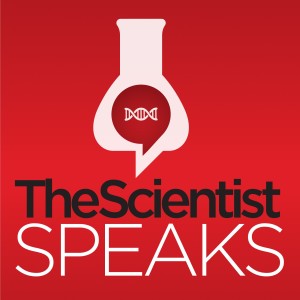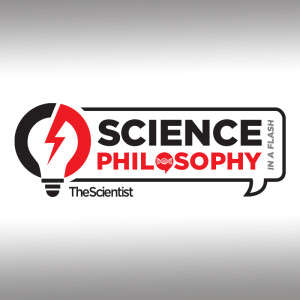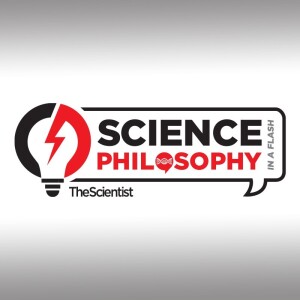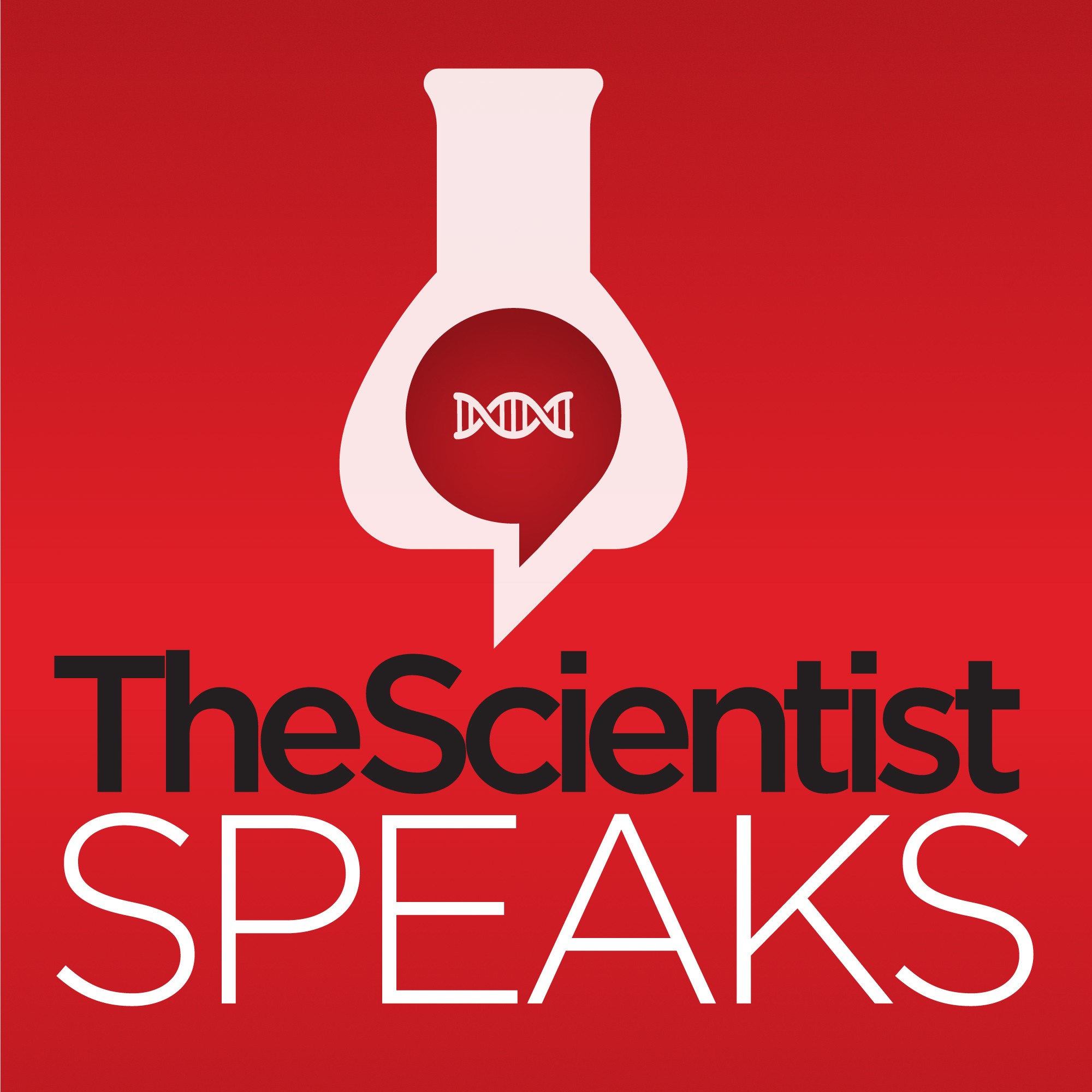Episodes

Wednesday Jul 31, 2024
Catch Me If You Can: Sequencing Screens for Rare Disease Genes
Wednesday Jul 31, 2024
Wednesday Jul 31, 2024
Rare diseases often remain undiagnosed due to unknown etiologies. In recent years, researchers have made headway in characterizing the molecular causes of rare diseases thanks to progressively powerful sequencing technologies, such as whole genome and exome sequencing.
In this episode, Deanna MacNeil from The Scientist spoke with medical geneticist and chair of the department of pediatrics at Boston Children's Hospital, Wendy Chung, to learn how the rare disease field has evolved alongside advances in next generation sequencing.
Scans of Sundry Variant Types Uncover Autism-Linked Genes
The Scientist Speaks is a podcast produced by The Scientist’s Creative Services Team. Our podcast is by scientists and for scientists. We bring you the stories behind news-worthy molecular biology research. This month’s episode is sponsored by Velsera.

Wednesday Jun 26, 2024
Organoids in Space: The Next Frontier
Wednesday Jun 26, 2024
Wednesday Jun 26, 2024
Building miniature brains may sound like a page out of a science fiction novel, but fact is indeed stranger than fiction. Researchers around the world grow brain organoids—3D miniature brains—to better understand brain development, aging, injury, and other disorders, as well as to test new treatment strategies. Some scientists take brain building to the next level by launching their brain organoids into outer space.
In this episode, Iris Kulbatski from The Scientist spoke with Alysson Muotri, a University of California, San Diego professor and Stem Cell Program director to learn more about how microgravity affects the cellular and molecular biology of brain organoids and how these discoveries can improve human health.
The Scientist Speaks is a podcast produced by The Scientist’s Creative Services Team. Our podcast is by scientists and for scientists. Once a month, we bring you the stories behind news-worthy molecular biology research. This month’s episode is sponsored by ACROBiosystems and Molecular Devices.

Saturday Jun 01, 2024
Saturday Jun 01, 2024
As a maternal-fetal immunologist at the Washington University School of Medicine, Nardhy Gómez-López investigates the immunobiological pathways that underlie pregnancy complications. Having trained and researched across the globe alongside caring and curious physicians, Gómez-López became hooked on perinatal immunology research. Motivated to help solve the prevalent problem of preterm birth, she currently looks at labor and birth, also called parturition, through a basic research lens.
In this Science Philosophy in a Flash podcast episode, The Scientist's Creative Services Team spoke with Gómez-López to learn more about her recent work investigating cellular changes in the maternal-fetal interface during parturition and what motivates her clinically collaborative research perspective.
To learn more about Gómez-López’s research, check out this article.
Science Philosophy in a Flash is a mini podcast series produced by The Scientist’s Creative Services Team. In this series, we highlight researchers’ unique outlooks on what it means to be a scientist.

Wednesday May 29, 2024
Understanding the Effects of Extrachromosomal DNA on Cancer
Wednesday May 29, 2024
Wednesday May 29, 2024
In the 1960s, researchers in England noticed an anomaly when investigating chromosomes from surgically removed human tumors. Distinct from the intact chromosomes visible underneath the microscope were numerous “very small double chromatin bodies,” which are today better known as extrachromosomal DNA. Thanks to modern sequencing and imaging techniques, researchers now know that these tiny bits of circular DNA play a big role in cancer outcomes.
In this episode, Niki Spahich from The Scientist spoke with Lukas Chavez, an assistant professor in the Cancer Genome and Epigenetics Program at the Sanford Burnham Prebys Medical Discovery Institute, to learn more about his team’s multiomic exploration of extrachromosomal DNA and how it influences medulloblastoma progression and treatment.
Welcome to The Scientist Speaks, a podcast produced by The Scientist’s Creative Services Team. Our podcast is by scientists and for scientists. Once a month, we bring you the stories behind newsworthy molecular biology research.
This episode is brought to you by biomodal.

Tuesday Apr 30, 2024
Tuesday Apr 30, 2024
As the Golub Family Professor of stem cell and regenerative biology at Harvard University, Paola Arlotta seeks to understand how the human brain is formed and what makes it unique. After being inspired by her high school science teacher, Antonio Vecchia, Arlotta pursued a research path that led to her current work exploring the cerebral cortex by growing human organoids in 3D cell culture and investigating their development with single cell sequencing techniques.
In this Science Philosophy in a Flash podcast episode, The Scientist’s Creative Services Team spoke with Arlotta to learn more about her path from a curious child in Italy to her current work exploring the complexities of human brain development using organoid models.
To learn more about Arlotta's research, check out this article.
Science Philosophy in a Flash is a mini podcast series produced by The Scientist’s Creative Services Team. In this series, we highlight researchers’ unique outlooks on what it means to be a scientist.

Wednesday Apr 24, 2024
Explainable AI for Rational Antibiotic Discovery
Wednesday Apr 24, 2024
Wednesday Apr 24, 2024
Researchers now employ artificial intelligence (AI) models based on deep learning to make functional predictions about big datasets. While the concepts behind these networks are well established, their inner workings are often invisible to the user. The emerging area of explainable AI (xAI) provides model interpretation techniques that empower life science researchers to uncover the underlying basis on which AI models make such predictions.
In this month’s episode, Deanna MacNeil from The Scientist spoke with Jim Collins from Massachusetts Institute of Technology to learn how researchers are using explainable AI and artificial neural networks to gain mechanistic insights for large scale antibiotic discovery.
Artificial Neural Networks: Learning by Doing
The Scientist Speaks is a podcast produced by The Scientist’s Creative Services Team. Our podcast is by scientists and for scientists. Once a month, we bring you the stories behind news-worthy molecular biology research.
This month's episode is sponsored by LabVantage, serving disease researchers with AI-driven scientific data management solutions that increase discovery and speed time-to-market. Learn more at LabVantage.com/analytics.

Wednesday Mar 27, 2024
Natural Trip: Endogenous Psychedelics and Human Physiology
Wednesday Mar 27, 2024
Wednesday Mar 27, 2024
The field of psychedelics research has exploded in recent years, as scientists dig deeper into the neuroscience and pharmacology of hallucinogens and how their unique properties can be harnessed to understand and treat depression, anxiety, post-traumatic stress disorder, Alzheimer’s disease, dementia, and neurodegenerative diseases. Remarkably, the human body produces its own endogenous psychedelics, the reasons for which have implications for understanding the ordinary and extraordinary states of human consciousness, from creativity and dreaming to near death experiences.
In this episode, Iris Kulbatski from The Scientist’s Creative Services Team spoke with Steven Barker, a professor emeritus at Louisiana State University to learn more about the human body’s ability to produce hallucinogenic compounds and their roles in physiological processes.
https://www.the-scientist.com/infographics/infographic-what-a-trip-71303
The Scientist Speaks is a podcast produced by The Scientist’s Creative Services Team. Our podcast is by scientists and for scientists. Once a month, we bring you the stories behind news-worthy molecular biology research.

Wednesday Feb 28, 2024
Epigenetics in a Dish
Wednesday Feb 28, 2024
Wednesday Feb 28, 2024
Every cell within the human body contains the same DNA, but not all cells look and act alike. The key to cellular diversity lies in which genes the cells express or shut down. Cells convey this information to the appropriate machinery through epigenetic modifications. In this episode, Charlene Lancaster from The Scientist spoke with Jonathan Weissman from the Massachusetts Institute of Technology and Luke Gilbert from the University of California, San Francisco to learn about making epigenetic changes in vitro and the application of these tools in research and the clinic.
The Scientist Speaks is a podcast produced by The Scientist’s Creative Services team. Our podcast is by scientists and for scientists. Once a month, we bring you the stories behind news-worthy molecular biology research. This month's episode is sponsored by Cytosurge, Molecular Devices, and Eppendorf.

Wednesday Jan 31, 2024
Virtual Laboratories for Remote Benchwork and Breakthroughs
Wednesday Jan 31, 2024
Wednesday Jan 31, 2024
Cloud-based systems enable remote science experiments, allowing researchers to accomplish experimental breakthroughs from virtually any location with computer access. Remote labs and cloud-connected instruments are revolutionizing the way researchers approach benchwork, improving scientific discovery and education by enabling accessible and automated workflows.
In this episode, Deanna MacNeil from The Scientist spoke with Mohammed Mostajo-Radji from the University of California, Santa Cruz; Brandon Sutherland from University of Toronto’s Accelerator Consortium; and Dana Cortade from Align to Innovate, to learn about connecting experiments to the cloud with remote research technologies.
The Scientist Speaks is a podcast produced by The Scientist’s Creative Services Team. Our podcast is by scientists and for scientists. We bring you the stories behind news-worthy molecular biology research.

Wednesday Nov 29, 2023
The Art and Science of Synthetic Biology
Wednesday Nov 29, 2023
Wednesday Nov 29, 2023
Researchers apply the principles of synthetic biology to address some of the most pressing human health challenges. In what some consider a science and an artform, scientists use bacterial components in creative ways to create synthetic cells for cancer research.
In this episode, Iris Kulbatski from The Scientist’s Creative Services Team spoke with Kate Adamala, an assistant professor at the University of Minnesota and a synthetic biologist working on engineering synthetic cells, to learn more about the latest advances in using synthetic biology for cancer therapy applications.
The Scientist Speaks is a podcast produced by The Scientist’s Creative Services Team. Our podcast is by scientists and for scientists. Once a month, we bring you the stories behind news-worthy molecular biology research. This month's episode is sponsored by Namocell – a Bio-Techne brand.

